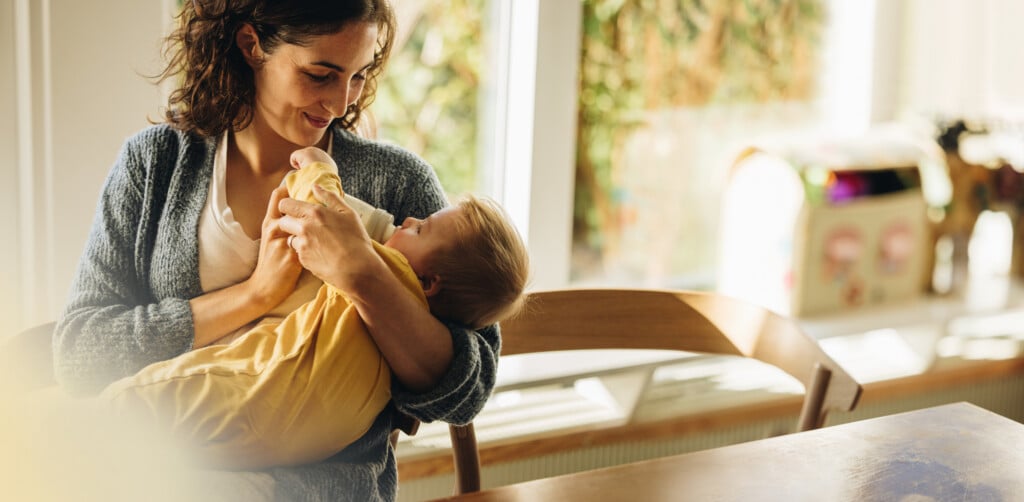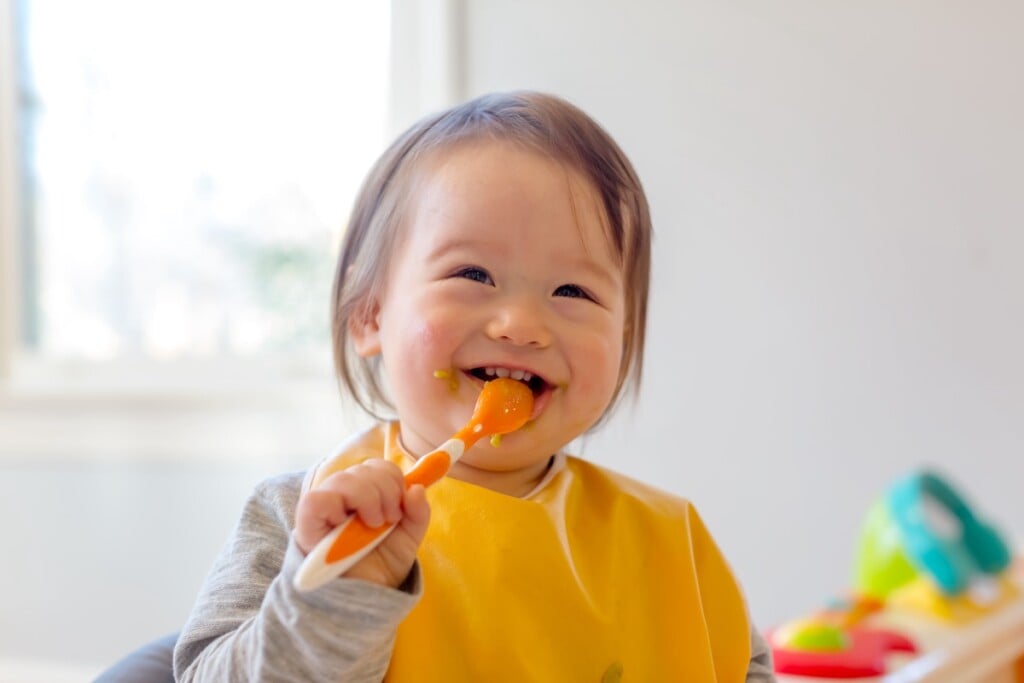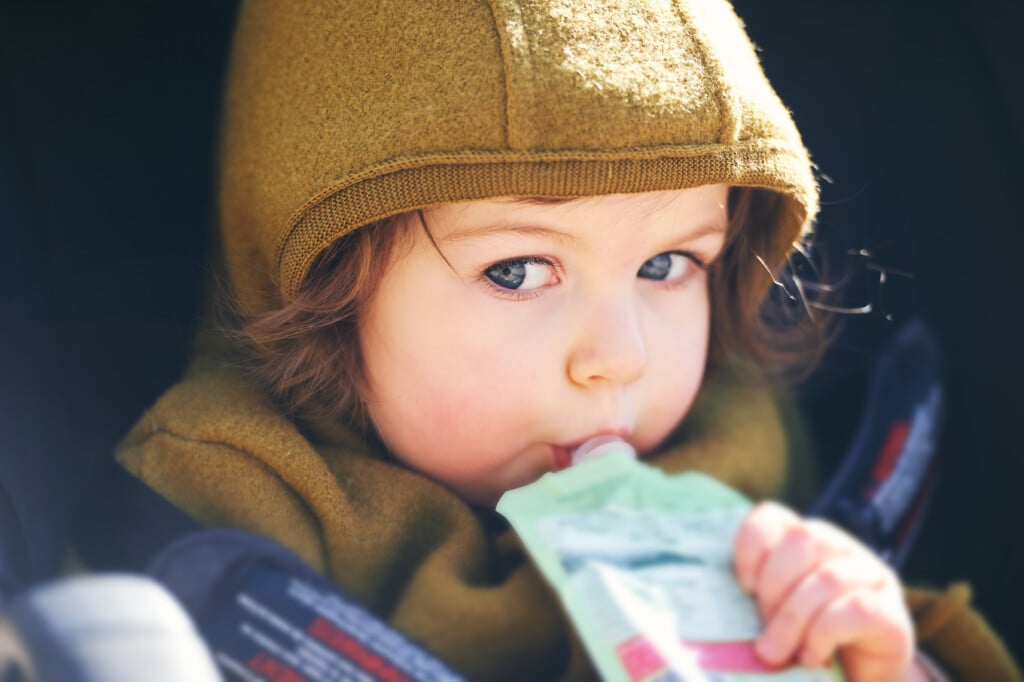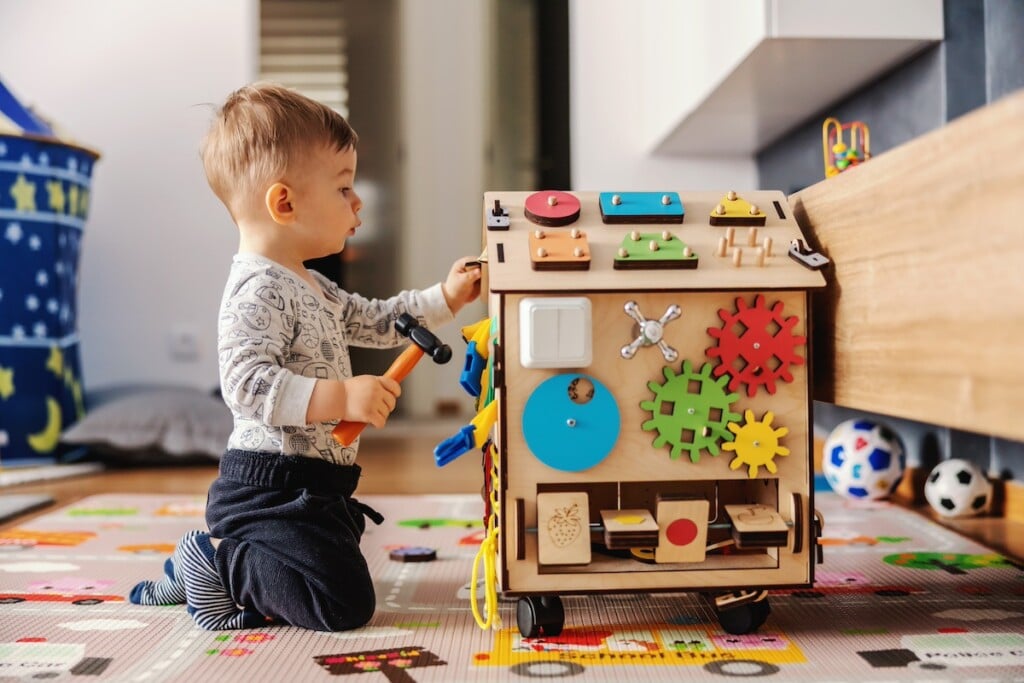Your Growing Baby: What You Need to Know

This article provides an overview of key developmental milestones to expect before your baby’s first birthday. It also provides tips for how parents can help aid their child’s development.
Moving & Exploration
0-3 MONTHS
Most important tasks for your baby:
- develops head and neck control
- tracks objects with eyes
- turns to source of sound
How you can help:
- provide support as neck muscles develop
- offer rattles and hang mobiles
- play daily with baby
3-6 MONTHS
Most important tasks for your baby:
- supports own weight on forearms while on tummy; rolls over
- swipes at objects; reaches out; grasps
How you can help:
- watch as baby plays on tummy to strengthen shoulder and neck muscles
- encourage reaching out for toys
6-9 MONTHS
Most important tasks for your baby:
- sits without support
- moves around on belly; gets onto hands and knees
- picks up/manipulates objects; puts things in mouth
How you can help:
- play with baby in sitting position
- offer toys with texture, sound and movement
- stack and knock over toys as a game
9-12 MONTHS
Most important tasks for your baby:
- crawls
- pulls up to a standing position; “cruises” around the furniture
- develops pincer grasp, more precise use of hands
How you can help:
- baby-proof the house for baby’s safety
- clear surfaces of small or breakable objects; cover pointed corners
- hand baby toys to explore and manipulate
Interaction & Feeding
0-3 MONTHS
Most important tasks for your baby:
- smile responses, first nonspecific and then social
- communicates needs by crying
How you can help:
- cuddle/hold baby; infants cannot be spoiled by attention
- respond to cries; meet baby’s needs
3-6 MONTHS
Most important tasks for your baby:
- spontaneous social smiles
- cries to get parents’ attention when in need
- responsive to words and sounds
How you can help:
- show delight in baby while cuddling, feeding and changing
- let baby touch your face and look into your eyes
- talk and sing to your baby; play music
6-9 MONTHS
Most important tasks for your baby:
- interested in people and many objects; more playful
- will touch mirror when seeing own image
- may begin to show fear toward strangers
How you can help:
- smile and laugh together; enjoy baby’s wonder at the world
- talk to baby while pointing to image in the mirror
- take baby places with you to increase comfort with others
9-12 MONTHS
Most important tasks for your baby:
- enjoys social interaction with others
- may show normal anxiety toward strangers, or when separated from caregivers
How you can help:
- play and have fun together
- try not to be away for extended periods
- let baby cuddle a blankie for security
Talking & Communicating
0-3 MONTHS
Most important tasks for your baby:
- communicates needs through crying
- hears, sees, feels, coos, burps and gurgles
- associates parents’ voices with comfort
How you can help:
- respond promptly to baby’s cries
- imitate baby’s sounds and say them back
- talk and sing to your baby
3-6 MONTHS
Most important tasks for your baby:
- experiments with new sounds, such as coos, gurgles and “baba”
- chews, sucks and bites on rattles
How you can help:
- imitate baby’s sounds; take turns making sounds
- offer rattles with variety of textures
6-9 MONTHS
Most important tasks for your baby:
- responds to own name
- makes more sounds and imitates gestures
- listens more selectively
How you can help:
- call baby by name
- “talk” with baby by repeating sounds
- sing nursery rhymes; sing along with children’s music
9-12 MONTHS
Most important tasks for your baby:
- copies sound combinations
- recognizes and begins to point at common objects
- repeats animal sounds; says “dada” and “mama”
How you can help:
- play gesture games such as “pat-a-cake” and “so big!”
- point to and label simple objects at home and in books
- identify animals, mommy and daddy
Thinking & Learning
0-3 MONTHS
Most important tasks for your baby:
- inborn motor and sensory reflexes (sucking, grasping, seeing, hearing)
- moving to regularity in eating, sleeping, urinating and bowel movements
How you can help:
- stimulate baby’s senses with varied textures, objects and soft sounds
- adapt to your baby’s patterns of eating, sleeping and wakefulness
3-6 MONTHS
Most important tasks for your baby:
- mouths and touches everything
- more interest in things beyond self
- looks at place from which a moving object has disappeared
How you can help:
- introduce soft, colorful toys with different textures and feels
- give baby a rattle, show how to shake it
- play peek-a-boo; drop a noisy toy and let baby look for it
6-9 MONTHS
Most important tasks for your baby:
- transfers toys from hand to hand
- pulls, bangs and shakes, plays actively
- explores and investigates
How you can help:
- play on the floor with toys
- let baby imitate what you do with toys
- praise baby for accomplishments
9-12 MONTHS
Most important tasks for your baby:
- begins to show intentional behavior; manipulates objects for different effects
- looks for toys he sees being covered
How you can help:
- demonstrate use of toys and encourage imitation
- play pointing/hiding games with toys




